The piece for the 700th Vilnius’ anniversary by Polish composer Agata Zubel is an attempt to find a link between the old and the new capital
At the beginning of October, Vilnius welcomed Polish composer and vocalist Agata Zubel, one of the world’s seven most prominent contemporary composers participating in the Music for Vilnius project dedicated to celebrate the upcoming 700th anniversary of Vilnius. The ambitious and award-winning composer combines avant-garde aesthetics with a striking theatricality, using also classical texts from Shakespeare to Milosz.
More about this project
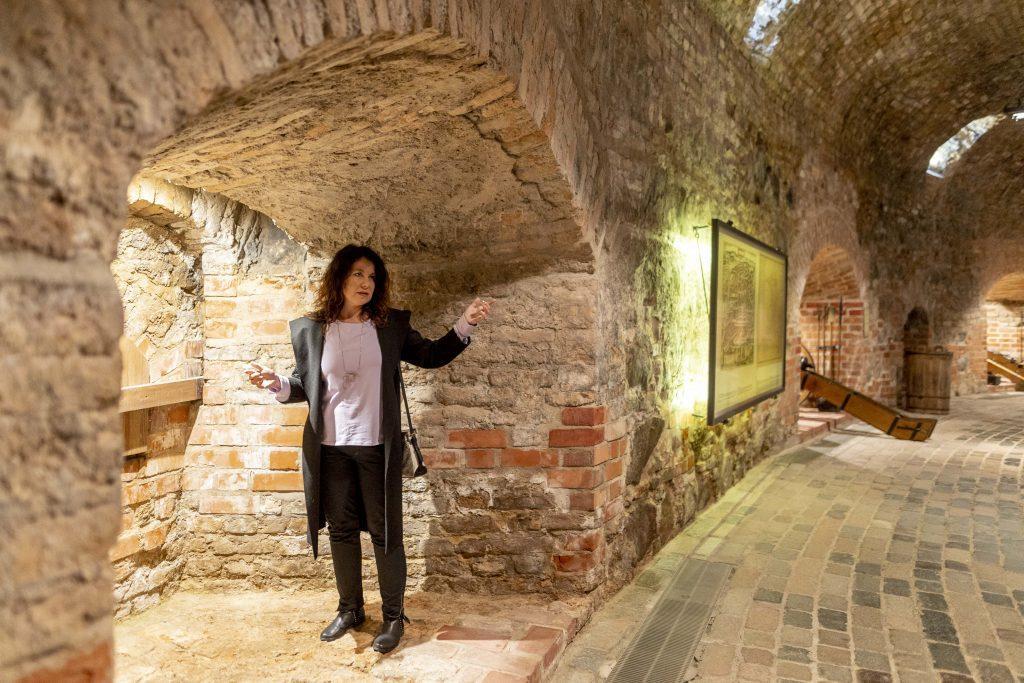
Ukrainian Anna Korsun, American Michael Gordon and German Heiner Goebbels have already visited Vilnius and selected venues to showcase their future works. Having visited and assessed the sites of interest in Vilnius, the composers will create unique 5-10 minutes’ pieces reflecting their architectural, cultural and social features.
Singer and composer Agata Zubel is renowned for her unique vocal range and non-conventional techniques. She has collaborated with some of the world’s most renowned ensembles, giving performance at venues such as Carnegie Hall in New York, the Walt Disney Concert Hall in Los Angeles, the Konzerthaus in Vienna, and Elbphilharmonie in Hamburg. She also participates in prestigious music festivals, has been commissioned by the world’s leading orchestras and festivals, and has a discography of several albums.
“I will try to build a bridge between the old and the new Vilnius”
Since the first performance by Agata Zubel in Vilnius 14 years ago, the city’s magnificent skyline and abundant greenery has become imprinted in her memory. “Nowadays, green spaces are very important in a city, and I’m glad that this hasn’t changed. This time, though, I focussed on different things during my stay: I visited museums and more interesting spots in the city searching for a venue for my future work. I tried to discover my own approach to Vilnius, to feel it within the context of this project.
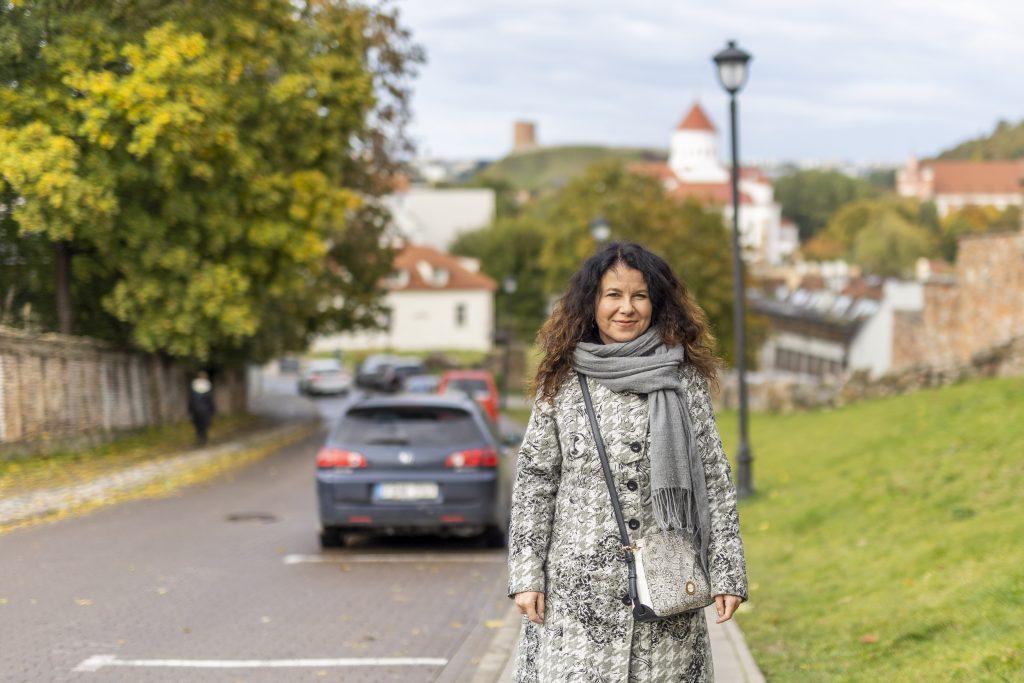
I already have one spot and an idea in mind but creating a relationship with the specific environment will present its challenges. I will try to build a sort of a bridge between very old and very new times, separated by centuries. In Vilnius there are a lot of places that have been preserved from the old days, which fascinate me. In one space, which I got attracted to, one can feel the vibes of the old times, the historical atmosphere, the calmness, the intimacy and the focus that goes with it. It’s like a contrast between modern architecture and our contemporaries who are always in a hurry. I don’t want to judge and compare what is better, because these eras lend themselves to no comparison. I just want to create a work based on this impression,” says Zubel.
“It’s a strong city with its own identity”
The composer noted that Vilnius has many links to old, folk music. One doesn’t hear it in the streets, of course, but the artist felt that connection when visiting museums and looking at the artefacts. “I really like it – because it’s important not to lose touch with the past if we want to keep our identity, and music also contributes to that. Just over three days I felt that Vilnius is a very strong city with a clear identity. I have done musical installations for special spaces, but this anniversary project in Vilnius is somewhat different – it will take so much more than simply choosing a space of one’s liking, but I will also have to come up with an idea connecting this space to the city’s anniversary.
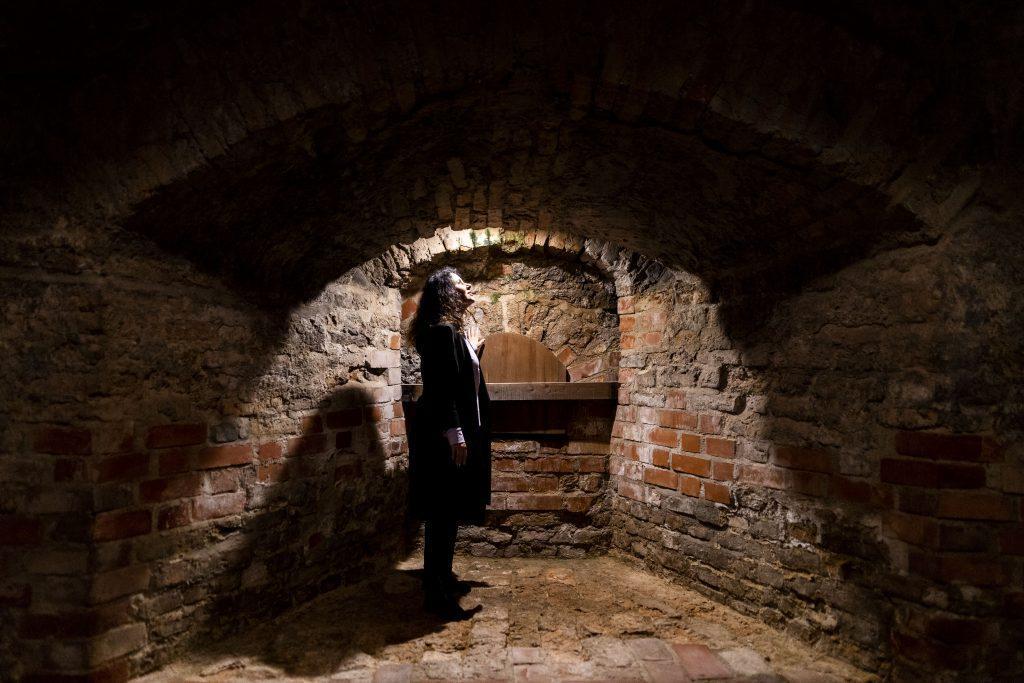
When I was contacted in relation to this project, the thought which immediately struck me was: “My God, it’s 700 years!” One can hardly imagine a period so long! But I love the challenge of creating something deep, involving people, contributing to a huge, significant event. I think I’m the kind of person who likes to have a completely clear mind and have a fresh start with every new work. So with every piece I try to feel it through as if it’s the first one in my life. And of course, when I think about a new work coming up, I must have an idea. I’m also a singer, so I write a lot of pieces for the voice: when you start with the text, you feel that it’s a completely different story than if you were writing just instrumental music,” she shared her thoughts.
“I used to beg my mother: pick me up as late as possible!”
Agata’s musical journey began in a slightly different way compared to most of her colleagues, as she was born into a family of scientists, where nobody played music. She might not have developed interest in music had it not been for the kindergarten she attended – the teacher used to let her press the piano keys when most of the children and their parents had gone home. “I remember begging my mother to pick me up as late as possible! Then my parents enrolled me in a music school, where I played percussion instruments, because we didn’t have a piano at home at first. Percussion instruments were a wonderful world that seemed to open my musical mind to colours and rhythm. There are thousands of such instruments, not just drums, the variety of sounds they produce is endless, and their sound still influences me today.
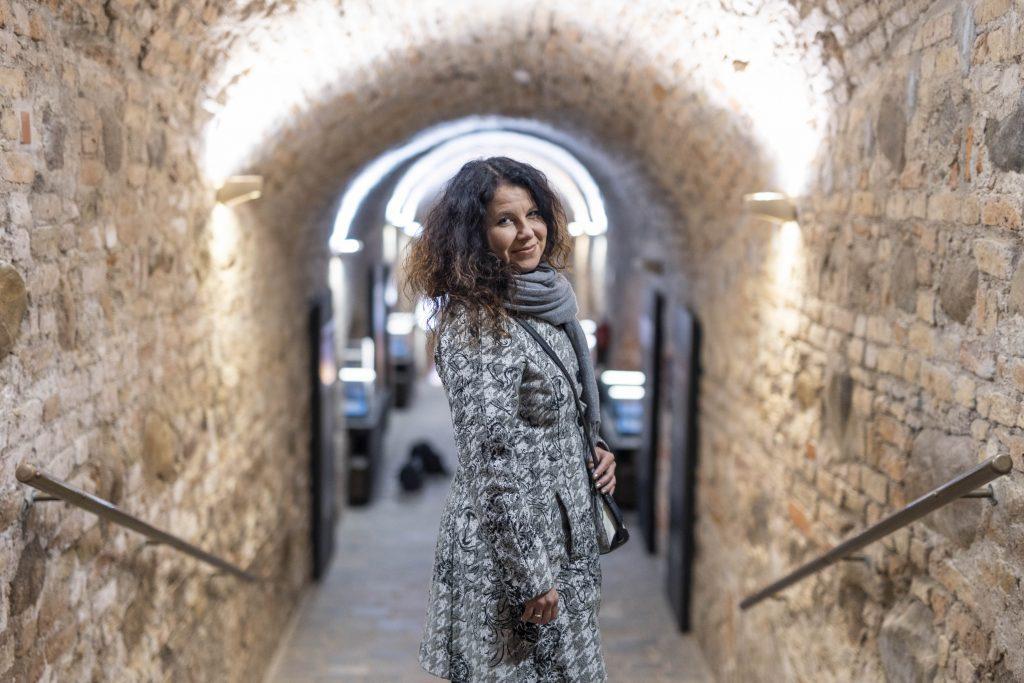
I tried to compose as a child, and in primary school I won a composition competition for children. Then the headmistress of the music school invited me to visit her and show my work to her husband, himself a composer. I used to visit them a lot, and I was very lucky to meet such a composition teacher, because in a normal music school you can only learn how to perform pieces, but not the basics of composition, at least in Poland. I am so lucky to have met a lot of fantastic people along the way, and I want to help the younger generation, just like I was once encouraged myself”, says Zubel.
Agata Zubel is an acclaimed and award-winning contemporary composer not only of instrumental music but also of operas and ballets. Her compositions have received awards in her homeland Poland, the European Composer’s Award and the Austrian Erste Bank Kompositionsprei Prize. Agata Zublel is currently a lecturer at the Academy of Music in Wrocław, where she holds the degree of Professor of Arts.
“I filter everything and release it into the world”
According to Agata Zubel, she has always tried to think out of the box, not to repeat or follow certain patterns in her work, even though this is a harder and longer way. “I think an artist needs to filter everything she perceives through herself, to transform it and then to release it into the world, be it literature, art, or music. This is what being an artist is all about, because otherwise it would be production, not creation. I also think that not only in art, but also in everyday life it is important to be open-minded, to notice and accept other points of view, to look at usual things from different perspectives.
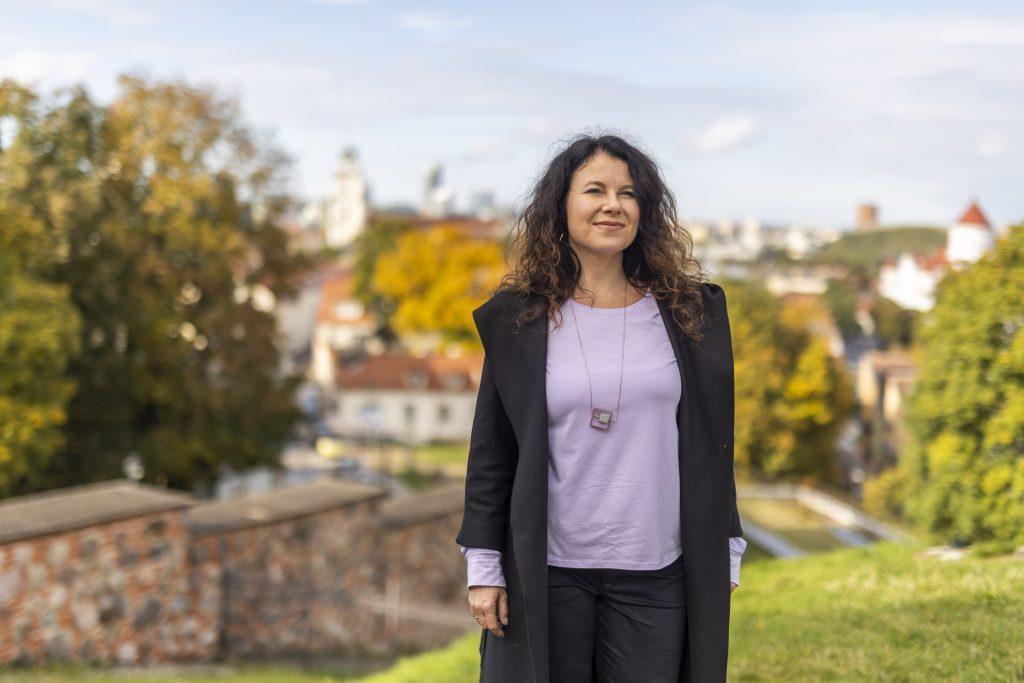
I like working with musicians, especially because there are a lot of subtle technical nuances on how to play an instrument, how to recreate a certain effect that I’m looking for. The collaboration between composer and performer is very important to me, especially when we have a strong creative bond. Also, when I’m composing music for opera or ballet, I have to work with the choreographer, the director and the conductor. I’m lucky – I usually meet fantastic people from other disciplines and they have great ideas too.
I have a very intense and beautiful autumn ahead of me with three premieres. I’ve already performed one at the Warsaw Autumn Festival, I’m going straight to the Donaueschingen Festival, which is one of the most important festivals for contemporary composers, and in November I’ll be giving the premiere of my Piano Concerto at the London Philharmonic Orchestra. So I’m very excited about all these encounters, even though I’m as busy as bee between concerts. As a singer, I also have some interesting work to do – I have compiled a programme of Mahlers’ songs. Not everybody knows that Gustav Mahler’s wife Alma was a composer, only her songs are not performed very often. So, I compiled their songs into one programme, which was very warmly received by the audience. I am truly happy!”, Zubel shared her plans.
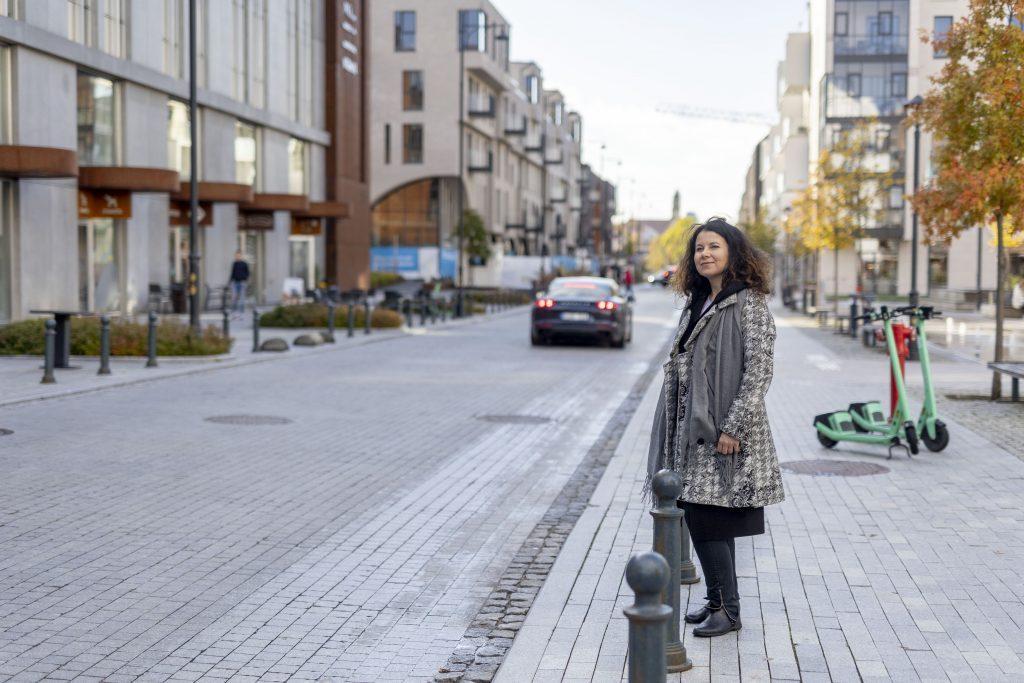
Composers from Japan, Italy and Austria are also expected in Vilnius. They will be looking for places evoking emotions and will dedicate their works to the capital’s jubilee. The composers involved in the Music for Vilnius project will create works especially for the spaces of Vilnius, which will become long-term musical installations on display for later viewing. It is hoped that they will not only serve as a musical reminder of the anniversary, but also as an invitation to rediscover the city’s most diverse spaces. The premieres of the specially commissioned works in 2023 will be accompanied by educational and creative workshops, excursions, concerts, and other events.
To find out more about the project “Music for Vilnius”, which is implemented by the public institution Meno genas and the Lithuanian Ensemble Network, please visit the initiative’s website www.musicforvilnius.com.
